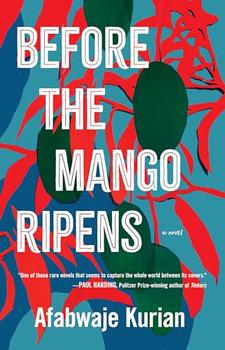In Jonathan Dee's elegant and explosive new novel, Sugar Street, an unnamed male narrator has hit the road. Rid of any possible identifiers, his possessions amount to $168,548 in cash stashed in an envelope under his car seat. Vigilantly avoiding security cameras, he drives until he hits a city where his past is unlikely to track him down, and finds a room to rent from a less-than-stable landlady whose need for money outweighs her desire to ask questions. He seems to have escaped his former self. But can he?
In a story that moves with swift dark humor and insight, Dee takes us through his narrator's attempt to disavow his former life of privilege and enter a blameless new existence. Having opted out of his material possessions and human connections, the pillars of his new self - simplicity, kindness, above all invisibility - grow shakier as he butts up against the daily lives of his neighbors in their politically divided working-class city. With the suspense of a crime thriller and the grace of our best literary fiction, Dee unspools the details of our unlikely hero's former life and his developing new one in a drumbeat roll up to a shocking final act.
Dee has been compared by the Wall Street Journal to authors such as Jonathan Franzen and Jennifer Egan for his expansive, contemporary, social novels; Sugar Street is a leaner, more personal, but still uncannily timely look at the volatile America of today. A risky, engrossing and surprisingly visceral story about a white man trying to escape his own troubling footprint and start his life over.
"A story of the desperation and ultimate impossibility of isolation, Dee's narrative is a spider web of questions that won't let readers go, questions like where does insanity begin and end? Readers of Dee's earlier novels will not want to miss this page-turner." - Library Journal (starred review)
"Dee returns 11 years after his Pulitzer finalist The Privileges with an energetic character study of a white man determined to escape from his life...Though a bit slim, Dee's work grapples intriguingly with the narrator's liberal myopia. It stands as a showcase of Dee's masterly prose." - Publishers Weekly
"An unsettling, propulsive, sometimes acidly funny book." - Kirkus Reviews
"Compelling and thrilling…Dee's impressive versatility is on display once again in this scintillating and entertaining tale." - Booklist
"With the skill of a virtuoso, Dee plays his character's shifting voice over its full emotional range– cunning, desperate, cynical, resigned and more. At barely more than 200 pages, Sugar Street is a novel that easily can be consumed in a single sitting. But that brevity is deceptive, because it's far from a simple book, and the feeling of unease it induces makes it an unsettling reading experience." - Shelf Awareness
"This propulsive and furious book is as fun to read as it is relentless and unsparing. Deranged and faltering America, Jonathan Dee has your number." - Joshua Ferris, author of The Dinner Party
This information about Sugar Street was first featured
in "The BookBrowse Review" - BookBrowse's membership magazine, and in our weekly "Publishing This Week" newsletter. Publication information is for the USA, and (unless stated otherwise) represents the first print edition. The reviews are necessarily limited to those that were available to us ahead of publication. If you are the publisher or author and feel that they do not properly reflect the range of media opinion now available, send us a message with the mainstream reviews that you would like to see added.
Any "Author Information" displayed below reflects the author's biography at the time this particular book was published.
Jonathan Dee is the author of eight novels, most recently The Locals and Sugar Street. His novel The Privileges was a finalist for the 2011 Pulitzer Prize and winner of the 2011 Prix Fitzgerald and the St. Francis College Literary Prize. A former contributing writer for the New York Times Magazine, a senior editor of the Paris Review, and a National Magazine Award-nominated literary critic for Harper's and the New Yorker, he has received fellowships from the National Endowment for the Arts and the Guggenheim Foundation. He teaches in the graduate writing program at Syracuse University.




When men are not regretting that life is so short, they are doing something to kill time.
Click Here to find out who said this, as well as discovering other famous literary quotes!
Your guide toexceptional books
BookBrowse seeks out and recommends the best in contemporary fiction and nonfiction—books that not only engage and entertain but also deepen our understanding of ourselves and the world around us.